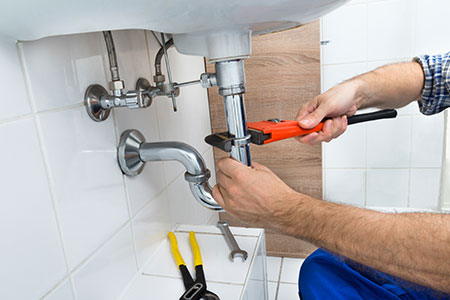Avoiding Plumbing Disasters – Proactive Measures to Reduce Emergencies
Preventing plumbing disasters requires a blend of proactive maintenance, vigilant observation, and timely intervention. One of the most effective ways to reduce the risk of plumbing emergencies is through regular inspections and upkeep. Scheduling routine check-ups with a professional plumber can identify potential issues before they escalate into significant problems. These inspections can reveal hidden leaks, worn-out pipes, or corrosion that might otherwise go unnoticed. Additionally, homeowners should be vigilant about keeping an eye on their plumbing systems. Simple practices like monitoring water pressure, checking for signs of leaks, and ensuring that drains are flowing smoothly can prevent many issues from developing into emergencies. For instance, an unusually high water bill can often signal a hidden leak, prompting timely repairs. Another crucial step in avoiding plumbing disasters is proper maintenance of plumbing fixtures and appliances.

Regularly cleaning drains and avoiding the disposal of inappropriate items such as grease, coffee grounds, and large food particles into the sink can prevent clogs and backups. Installing drain guards or strainers can also help catch debris before it causes blockages. For toilets, using them as intended and avoiding flushing non-flushable items will reduce the risk of clogs and overflow. Temperature control is another proactive measure to consider local emergency plumber. In colder climates, insulating exposed pipes can prevent them from freezing and bursting during extreme weather conditions. Pipes located in unheated areas, such as basements or attics, are particularly susceptible to freezing, so applying pipe insulation or heat tape can provide protection against low temperatures. Water quality management is also essential. Installing water filters can prevent sediment and minerals from accumulating in pipes and appliances, which can lead to corrosion and reduced efficiency. For homes with hard water, using a water softener can mitigate the effects of mineral buildup and extend the lifespan of plumbing fixtures. Education and awareness play a significant role in disaster prevention.
Understanding the location of the main water shut-off valve can be crucial in an emergency. Familiarize yourself with how to turn off the water supply quickly to mitigate damage if a pipe bursts or a major leak occurs. Additionally, knowing the basics of plumbing, such as how to clear a minor clog or handle a small leak, can empower homeowners to take immediate action and reduce the severity of potential issues. Finally, it is important to address minor issues promptly. Ignoring small leaks or slow-draining sinks can lead to larger, more costly problems down the line. Fixing minor issues as soon as they arise prevents them from escalating into serious emergencies. By implementing these proactive measures regular inspections, proper maintenance, temperature control, water quality management, and prompt issue resolution homeowners can significantly reduce the likelihood of plumbing disasters and ensure a smoother, more reliable plumbing system.